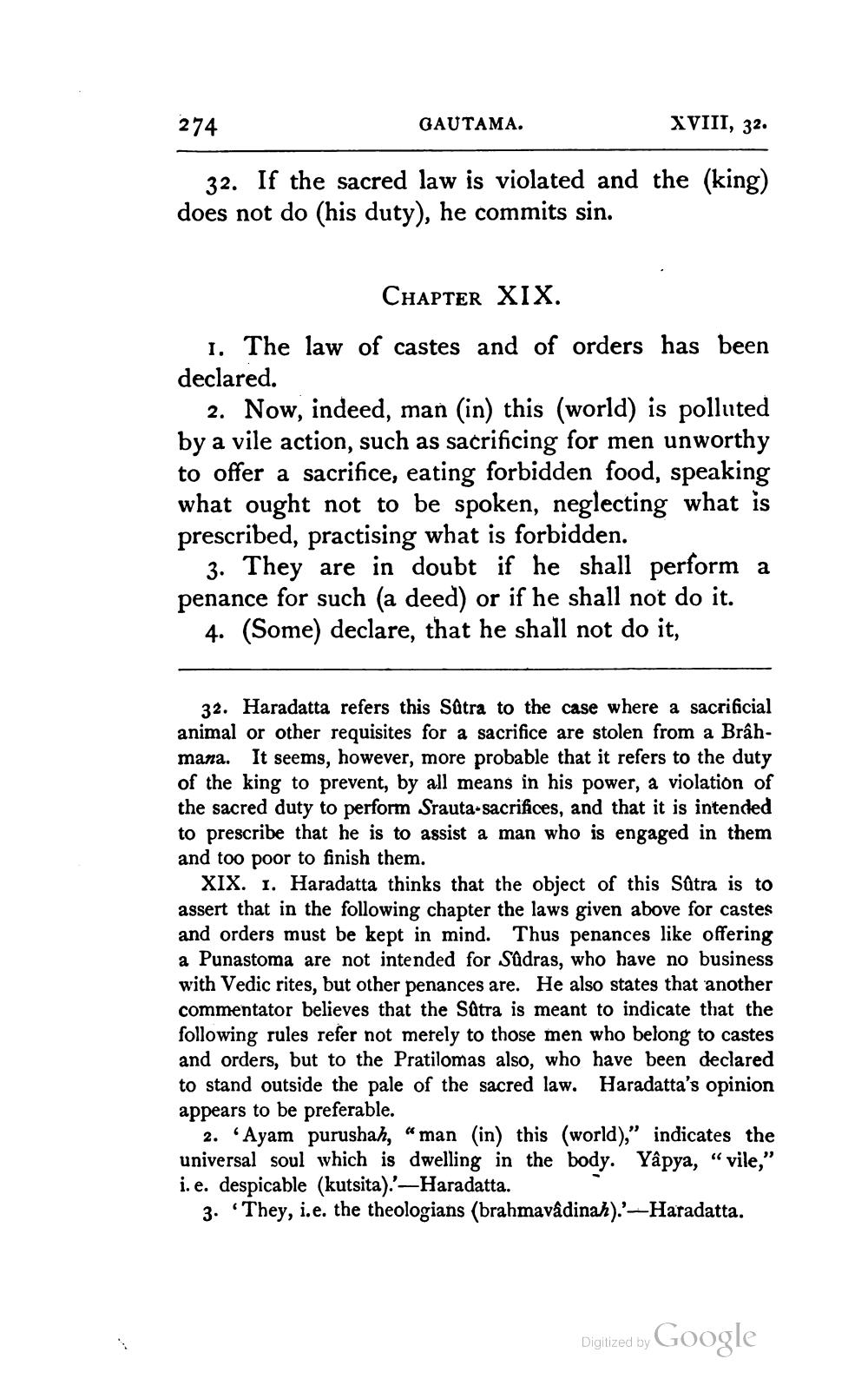________________
274
GAUTAMA.
XVIII, 32.
32. If the sacred law is violated and the (king) does not do (his duty), he commits sin.
CHAPTER XIX. 1. The law of castes and of orders has been declared.
2. Now, indeed, man (in) this (world) is polluted by a vile action, such as sacrificing for men unworthy to offer a sacrifice, eating forbidden food, speaking what ought not to be spoken, neglecting what is prescribed, practising what is forbidden.
3. They are in doubt if he shall perform a penance for such (a deed) or if he shall not do it.
4. (Some) declare, that he shall not do it,
32. Haradatta refers this Satra to the case where a sacrificial animal or other requisites for a sacrifice are stolen from a Brahmana. It seems, however, more probable that it refers to the duty of the king to prevent, by all means in his power, a violation of the sacred duty to perform Srauta-sacrifices, and that it is intended to prescribe that he is to assist a man who is engaged in them and too poor to finish them.
XIX. 1. Haradatta thinks that the object of this Satra is to assert that in the following chapter the laws given above for castes and orders must be kept in mind. Thus penances like offering a Punastoma are not intended for Sudras, who have no business with Vedic rites, but other penances are. He also states that another commentator believes that the Sätra is meant to indicate that the following rules refer not merely to those men who belong to castes and orders, but to the Pratilomas also, who have been declared to stand outside the pale of the sacred law. Haradatta's opinion appears to be preferable.
2. Ayam purushah, “man (in) this (world),” indicates the universal soul which is dwelling in the body. Yâpya, “vile,” i.e. despicable (kutsita).'-Haradatta.
3. "They, i.e. the theologians (brahmavadinah).'-Haradatta.
Digized by Google




